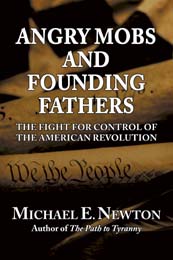We all remember Bank of America’s recent attempt to initiate a debit card fee of $5. It failed because of bad publicity. However, BofA and the other banks are not giving up. The New York Times reported yesterday:
Banks Quietly Ramping Up Costs to Consumers
Even as Bank of America and other major lenders back away from charging customers to use their debit cards, many banks have been quietly imposing other new fees.
Need to replace a lost debit card? Bank of America now charges $5 — or $20 for rush delivery.
Deposit money with a mobile phone? At U.S. Bancorp, it is now 50 cents a check.
Want cash wired to your account? Starting in December, that will cost $15 for each incoming domestic payment at TD Bank. Facing a reaction from an angry public and heightened scrutiny from regulators, banks are turning to all sorts of fees that fly under the radar. Everything, it seems, has a price.
“Banks tried the in-your-face fee with debit cards, and consumers said enough,” said Alex Matjanec, a co-founder of MyBankTracker.com. “What most people don’t realize is that they have been adding new charges or taking fees that have always existed and increased them, or are making them harder to avoid.”
Banks can still earn a profit on most checking accounts. But they are under intense pressure to make up an estimated $12 billion a year of income that vanished with the passage of rules curbing lucrative overdraft charges and lowering debit card swipe fees. In addition, with lending at anemic levels and interest rates close to zero, banks are struggling to find attractive places to lend or invest all the deposits they hold. That poses another $8 billion drag.
Put another way, banks would need to recoup, on average, between $15 and $20 a month from each depositor just to earn what they did in the past, according to an analysis of the interest rate and regulatory changes on checking accounts by Oliver Wyman, a financial consulting firm.
For consumers, the result is a quiet creep of new charges and higher fees for everything from cash withdrawals at ATMs to wire payments, paper statements and in some cases, even the overdraft charges that lawmakers hoped to ratchet down. What is more, banks are raising minimum account balances and adding other new requirements so that it is harder for customers to qualify for fee waivers.
While consumer blame the “greedy” banks and Occupy Wall Street whines and complains about how this is another example of the one percent sticking it to the ninety-nine percent, this is really a story of government policies. As mentioned in the article, the banks “are under intense pressure to make up an estimated $12 billion a year of income that vanished with the passage of rules curbing lucrative overdraft charges and lowering debit card swipe fees. In addition, with lending at anemic levels and interest rates close to zero, banks are struggling to find attractive places to lend or invest all the deposits they hold. That poses another $8 billion drag.”
The first change–new rules on overdraft and debit card swipe fees–come straight from new government regulations. The latter–low interest rates–come from the Federal Reserve. I will focus on how low interest rates hurt banks and consumers because it is not easily observed.
Interest rates near zero give banks little room to make money. In the good old days, banks would take deposits and use the proceeds to lend or buy bonds. Just a few years ago, banks could easily buy short-term debt yielding two or three percent. Now, it earns less than one percent. Banks today could choose to take on risk and earn about four percent lending money to a home buyer, if it can find a credit-worthy borrower. Just a few years ago, mortgages yield seven or eight percent. The spreads banks earn have clearly declined, giving them less opportunity to earn a profit or even to cover expenses.
Look at money market funds, for example. With the government’s 3-month T-bill yielding 0.01 percent, money markets that invest in those securities lose money even when it pays no interest because of fund expenses. Even the 3-month interbank rate at 0.46% makes it difficult for money markets investing in commercial paper to earn a profit.
Normally, banks make money using the risk spread or the time spread. With the risk spread, banks borrow cheaply and lend to riskier clients, booking a profit on the risk taking. With the time spread, banks pay out lower short-term interest rates and collect higher long-term interest rates. With the current environment of low rates all around–a result of deliberate Federal Reserve policies–earning a profit in normal banking operations has become impossible. Instead, the banks are forced to initiate or raise fees.
Of course, the government loves this. The government creates this problems, consumers blame the banks for the new fees, and then the government steps in to further regulate the banks. Government creates the problems without taking the blame, then solves it and takes all the credit.
– Michael E. Newton is the author of the highly acclaimed The Path to Tyranny: A History of Free Society’s Descent into Tyranny. His newest book, Angry Mobs and Founding Fathers: The Fight for Control of the American Revolution, was released by Eleftheria Publishing in July.










You must be logged in to post a comment.